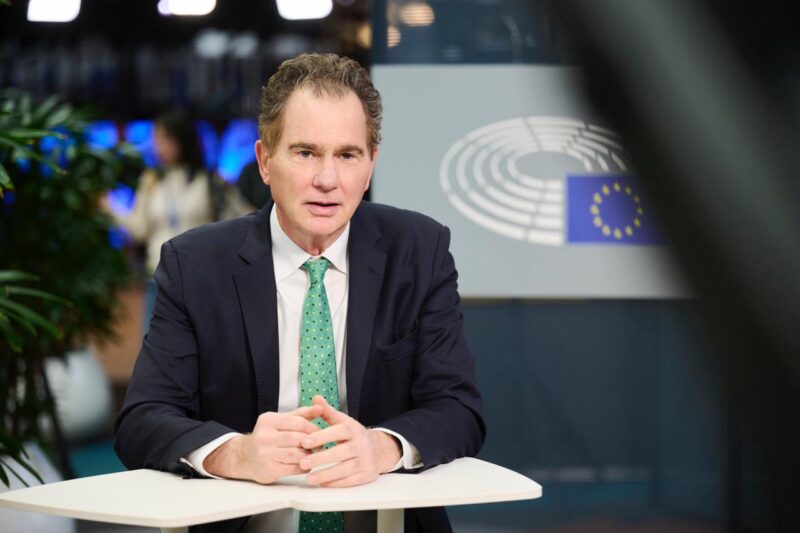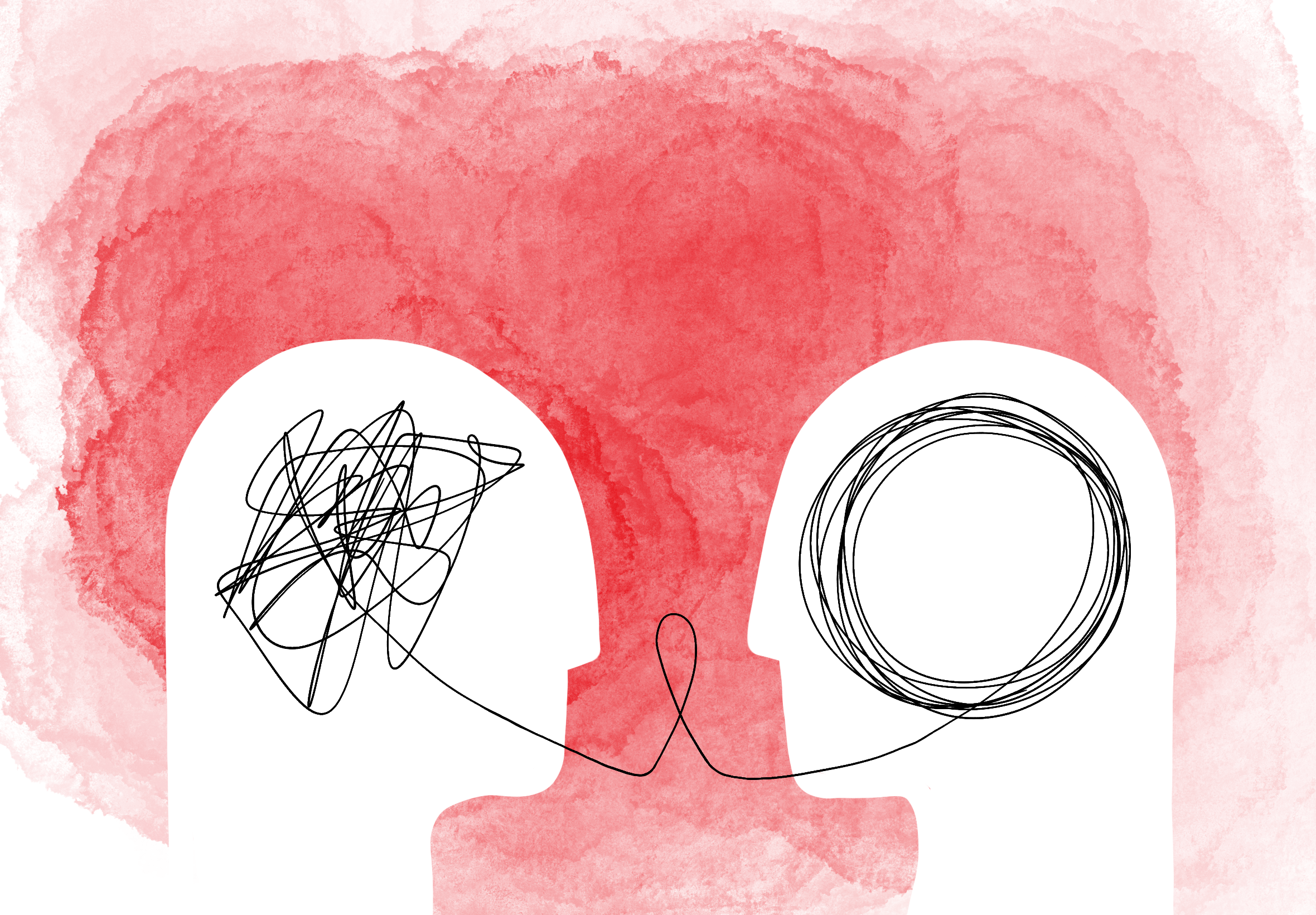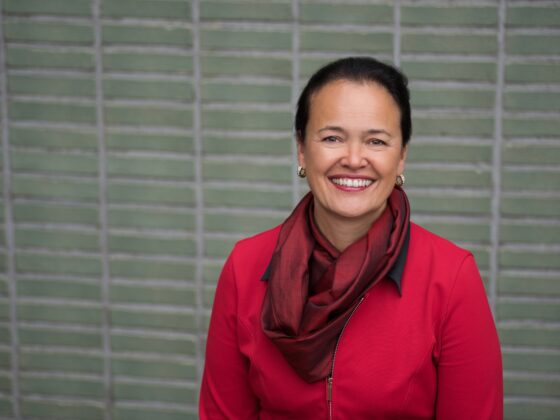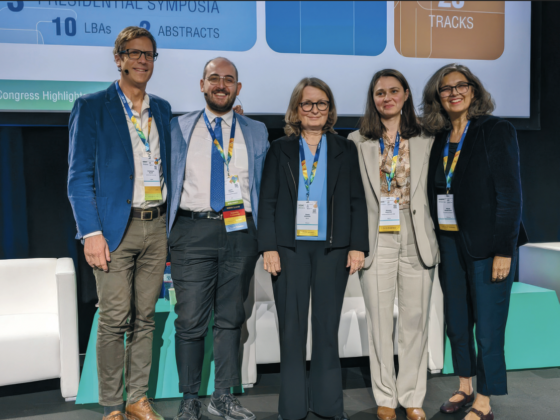CancerWorld had the opportunity to interview Nikos Papandreou, Member of the European Parliament and a dedicated advocate for cancer policy reform. With a background in politics, economics, and healthcare policy, Mr. Papandreou has been at the forefront of tackling Europe’s cancer challenges. As a member of the SANT Committee, he is working to drive meaningful changes in cancer prevention, access, and treatment across the EU. We are pleased to share his insights on how Europe can better address the cancer burden and ensure equitable care for all as well as the personal and professional motives shaping his decisions in the field.
You have had a diverse career spanning politics, economics, and public policy. For those who may not be familiar with your background, can you tell us a bit about yourself and how your journey led you to focus on cancer-related issues?
My career has been driven by a deep commitment to finding practical solutions to societal challenges, particularly in healthcare and economic policy. With experience spanning international institutions like the World Bank and advisory roles in Greek socialist governments, I have seen firsthand how policy decisions impact people’s lives.
My involvement in healthcare policy, including cancer-related issues, stems from witnessing Greece build a national health system from the ground up. I believe that beyond laws and regulations, systems need the right incentives and flexibility to function effectively, whether for frontline healthcare workers or hospital administrators.
Additionally, my background as a writer has shaped my ability to empathize with different perspectives. Understanding the struggles of individuals—whether due to income disparities or health challenges—has reinforced my dedication to reducing inequities. Cancer policy, in particular, demands this kind of sensitivity and pragmatism, as improving prevention, access, and care requires both systemic reform and human-centred solutions.
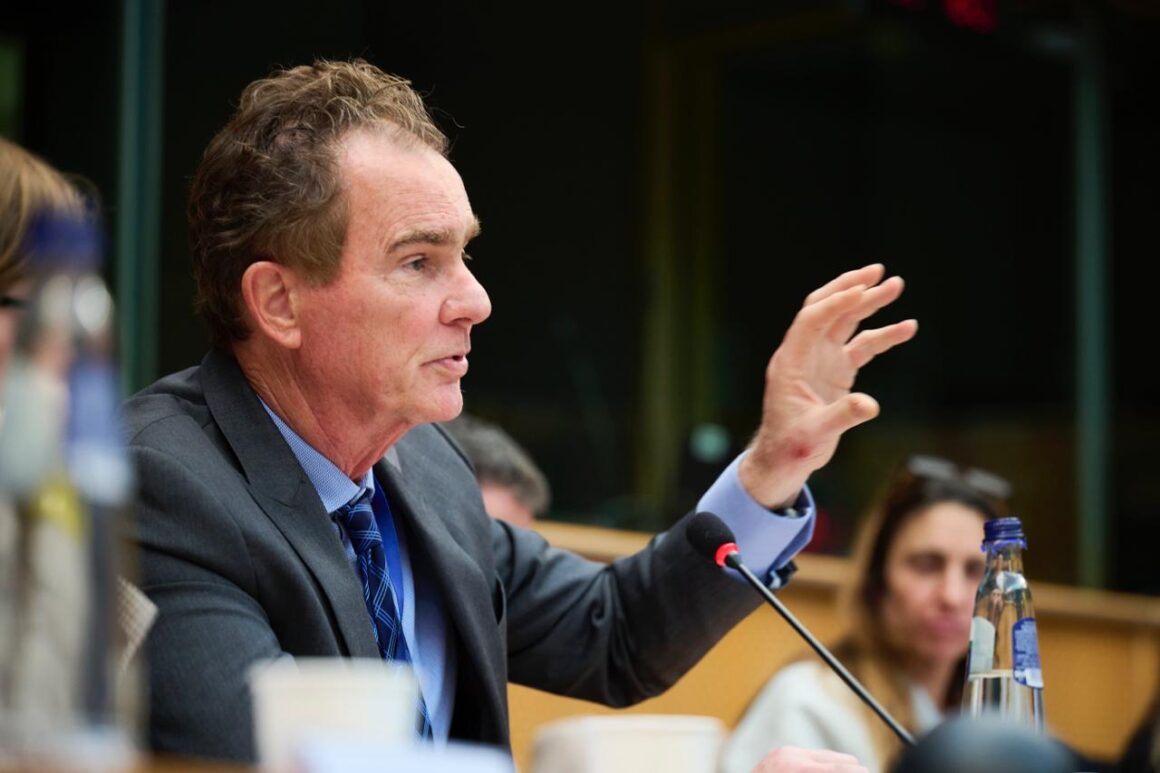
As an MEP and a member of the newly formed SANT Committee, what motivated you to take a strong stance on cancer-related issues?
Cancer is one of the most pressing health challenges of our time and is projected to become the leading cause of death in Europe by 2030. It affects us all—not only as patients but also as family members, caregivers, colleagues, and members of our communities. The impact extends beyond health, influencing the way people work, return to work, and participate in society. Addressing cancer is, therefore, not just a healthcare issue but also a social and economic imperative.
As a member of the newly formed SANT Committee, I see a crucial opportunity to ensure that cancer remains a top political priority. The committee plays a vital role in shaping EU policies on public health, food safety, and disease prevention. By focusing on cancer, we can drive forward meaningful policies that improve prevention, early detection, and access to care.
My motivation is also personal—I have first-hand experience with the realities of cancer. This drives my commitment to advocating for solutions that make a tangible difference in people’s lives.
How do you see the European Parliament’s role in shaping policies that directly impact cancer patients, research, and access to care?
Extremely important because the parliament can take a global view and provide all three of the topics with the proper financial and other instruments to tackle the problem head-on.
The Role of the SANT Committee & Legislative Priorities
What are the key objectives of the SANT Committee in addressing the challenges faced by cancer patients?
The Special Committee on Public Health has a strong mandate to improve public health policies across Europe, with cancer being a central focus. The committee builds on the work of the previous BECA (Special Committee on Beating Cancer) and aims to ensure the effective implementation of Europe’s Beating Cancer Plan. Key objectives include continued focus on prevention and early detection, particularly by reducing risk factors such as tobacco and alcohol consumption, air pollution, and unhealthy diets. One of the key actions we are taking early on is to open a dialogue with the European Commission on accessing the progress of the EBCP since its launch 4 years ago. Based on this, the committee will also work on its own initiative report to make sure that gaps are not only identified but that there are concrete steps taken to support Member States in addressing disparities in access to high-quality cancer treatment across Member States, ensuring patients benefit from the latest innovations in medicine, including personalised treatments and advanced therapies. And, of course, we should not forget that improving the quality of life for cancer patients and survivors is key. We need to be addressing challenges such as returning to work, access to psychosocial care, and tackling discrimination.
From your perspective, what are the most urgent gaps in European cancer policies that need immediate attention?
While the EU has made significant progress through Europe’s Beating Cancer Plan, several urgent gaps remain, such as inequalities in cancer care, workforce shortages, and limited access to innovative treatments. Access to prevention, early detection, and treatment varies widely across and within Member States. Here, we need to be honest and see the reality – divides between north and south, east and west, still affect patients. And not to forget that medical desserts are a real issue across the Member States; let’s take, for example, Italy; according to the latest data from 2021, nearly 50% of all breast cancer care units are in Northern Italy, 28.8% in the centre and 25.6% in the South. This example serves to show two concrete issues – data about cancer care remains scarce and often outdated, and this divide is just looking into one area of cancer – breast; many more exist when looking into the care provided for different cancers.
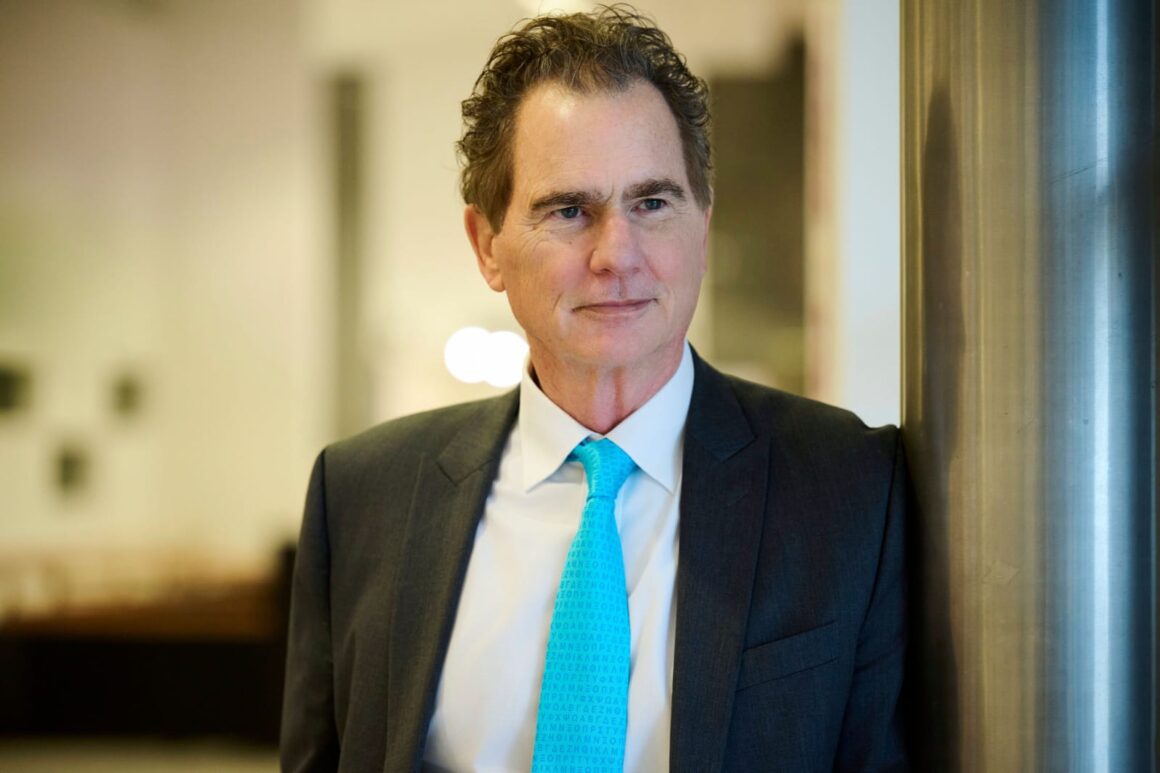
Additionally, the regions with limited access to care facilities also experience higher levels of workforce shortages in oncology. Investment in training and retaining healthcare workers is urgently needed. Finally, while Europe is a leader in cancer research, patients often face delays in accessing the latest therapies due to regulatory barriers, pricing issues, and reimbursement challenges. Up to 526 days is the time patients in the EU must wait to access an oncology treatment after the European Medicines Agency (EMA) grants an authorisation.
Tackling these gaps requires coordinated action at the EU level, stronger collaboration with Member States, and investment in policies that put patients at the centre.
How does the European Parliament, under your guidance, work with research organizations, pharmaceutical companies, and advocacy groups to ensure effective policymaking?
Effective cancer policy requires a multi-stakeholder approach. The Parliament ensures that cancer-related policies are informed by scientific evidence and patient needs by consulting experts from the European Medicines Agency (EMA), research institutions, and patient organisations through organising hearings, mandating studies, and listening, a key responsibility to all members. The European Parliament has a key role in helping secure funding for cancer research through Horizon Europe and other EU programs, ensuring continuous investment in cutting-edge treatments and technologies. By working closely with the European Commission and Member States, Parliament helps track progress on Europe’s Beating Cancer Plan, identifying areas where further action is needed.
Launch of the White Paper on ESR1 Mutations & Liquid Biopsy in Metastatic Breast Cancer
A few weeks ago, you hosted the launch of the CPE White Paper on ESR1 Mutations and Liquid Biopsy in metastatic breast cancer. Why was this a crucial milestone?
The recent launch of the Cancer Patients Europe (CPE) White Paper on ESR1 Mutations and Liquid Biopsy in metastatic breast cancer represents a pivotal advancement in personalised cancer care. Metastatic breast cancer refers to an advanced stage of cancer where the disease spreads to another part of the body. In order to ensure that breast cancer patients receive the right treatment at the right time, we need to shed light on those advancements.
This initiative emphasises the critical role of liquid biopsies in detecting ESR1 mutations, which are key drivers of treatment resistance in metastatic breast cancer. By increasing awareness and accessibility of liquid biopsy testing, the project aims to empower patients and healthcare providers with the knowledge needed to make informed treatment decisions, ultimately improving patient outcomes.
What concrete actions should be taken at the European level to accelerate the integration of liquid biopsy into routine cancer care?
Several concrete actions are essential to expedite the integration of liquid biopsies into routine cancer care at the European level. Here are a couple – standardisation of testing protocols will ensure consistency and reliability in diagnostics. We need concrete investment in infrastructure by allocating resources to equip medical facilities with the necessary technology and training for liquid biopsy implementation, which is crucial for widespread adoption. Finally, incorporating liquid biopsy testing into national cancer care guidelines and reimbursement policies will enhance accessibility for all patients.
Many groundbreaking technologies face hurdles in clinical adoption. What legislative or regulatory frameworks can facilitate the rapid implementation of advanced diagnostics like liquid biopsy?
Supportive legislative and regulatory frameworks are necessary to facilitate the rapid implementation of advanced diagnostics like liquid biopsies. What we can champion at the European level is the aligning of regulatory standards across European countries, which can streamline the approval and integration of new diagnostic technologies. But that will only be possible through good collaboration with stakeholders – policymakers, research organisations, pharmaceutical companies, and patient advocacy groups.
Cancer Patients at the Heart of Policy Decisions
You have expressed deep concerns about the well-being of cancer patients. Is there a particular experience or patient story that has shaped your advocacy?
Unfortunately, both my experience and those of many other cancer patients around me show that even in the cases that you get the proper diagnosis, that does not automatically mean you will receive the proper treatment! For some reason, doctors do not always apply the protocols in Greece. Secondly, cancer patients need a special support system because it almost always falls on the family, and that may not be the most appropriate method. Families can all get depressed together, which does not make for rapid recovery, as one example. Finally, for the young whose illness takes them out of their world and they come back a year later, there needs to be support for adjustment. To take a few examples.
Europe still faces disparities in access to early detection, innovative treatments, and clinical trials. What steps should be taken to ensure equal access to high-quality cancer care across EU countries?
Addressing disparities in cancer care across Europe requires a multifaceted approach. As already mentioned, we need to implement uniform cancer screening guidelines to ensure early detection is accessible to all citizens, regardless of their location. We need to address the issue of medical desserts by enhancing healthcare facilities and technologies in under-resourced regions to provide timely and effective treatments. And of course, we cannot forget that we still need to target risk factors such as tobacco and alcohol use through educational programs and public health initiatives to reduce cancer incidence.
European Cancer Plan & Beyond
The Europe’s Beating Cancer Plan is a major initiative. What tangible progress has been made so far, and where do you see room for improvement?
Europe’s Beating Cancer Plan (EBCP) has made significant strides, such as launching the European Cancer Imaging Initiative, which establishes infrastructure for cancer images to enhance diagnostics and treatment through AI integration. Personally, I also congratulate all Member States for launching their national cancer plans and starting to collect data on cancer incidence, treatment and outcomes.
However, despite efforts, as already mentioned, disparities in cancer survival rates can still exceed 30% between certain countries. We need to continue improving public understanding of cancer prevention and treatment options to encourage proactive health management.
How do AI, big data, and digital health tools fit into the future of cancer care in Europe?
AI, big data, and digital health tools are pivotal in transforming cancer care, especially when looking into advancing personalised Treatment Plans. AI can analyse vast datasets to tailor treatments to individual patient profiles, enhancing efficacy and reducing side effects. I recently read about a new pilot project in Sweden, which was launched in April 2024 and focuses on the potential for AI to estimate breast cancer risk. 70,000 women between 40 and 74 years old will undergo breast cancer screening, with 35,000 women checked every two years. Another 35,000 women will receive the same screening with the addition of risk assessments using the developed AI model. This program aims to find structural patterns in images of women’s mammography and detect cancer at an early stage. This pilot study could show the capacity of machine learning algorithms to identify subtle patterns in medical images, leading to earlier and more accurate diagnoses.
Final Thoughts
What is your key message to healthcare professionals, decision-makers, and patients in the fight against cancer?
Collaboration is essential. Healthcare professionals should embrace innovative practices and continuous learning. Decision-makers must prioritise equitable access to care and support research initiatives. Patients are encouraged to engage actively in their health journeys, advocating for their needs and participating in preventive measures. Together, we can create a future where high-quality cancer care is accessible to all.
Looking ahead, what specific impact do you hope to make in cancer advocacy and policy by the end of your term?
By the end of my term, I aim to strengthen policies that reduce disparities in cancer care across Europe—and continue to promote innovation and enhanced collaboration by fostering stronger partnerships among EU countries, research organisations, and patient advocacy groups to create a unified front against cancer.
We thank Nikos Papandreou for sharing his vision for the future of cancer care in Europe and look forward to seeing how his work on the SANT Committee continues to shape the landscape of cancer treatment and policy in Europe.

